Single African Air Transport Market | |
|---|---|
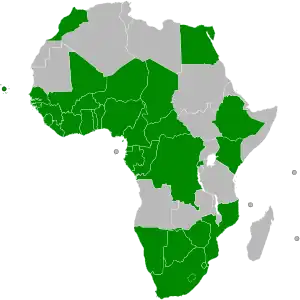 Participating countries | |
| Location | Africa |
| Type | Air transport agreement |
| Participants | 34 states |
| Establishment | |
• Yamoussoukro Declaration | 1988 |
• Yamoussoukro Decision | 1999 |
• SAATM launched | 28 January 2018 |
Website au | |
The Single African Air Transport Market (SAATM) is a project of the African Union to create a single market for air transport in Africa. Once completely in force, the single market is supposed to allow significant freedom of air transport in Africa, advancing the AU's Agenda 2063.[1]
Primarily, the goal of the SAATM is to fully implement the 1999 Yamoussoukro Decision. This means that all participants agree to lift market access restrictions for airlines, remove restrictions on ownership, grant each other extended air traffic rights (first through fifth freedoms, not affecting cabotage rights), and liberalise flight frequency and capacity limits. Both passenger and cargo aviation are included.[2] It also seeks to harmonise safety and security regulations in aviation, based on ICAO requirements.[3] Oversight over the SAATM is exercised by the African Union, its Regional Economic Communities, and the African Civil Aviation Commission (AFCAC).[4][5]
History
The benefit of liberalising air traffic, particularly the fifth freedom, was first acknowledged in the Yamoussoukro Declaration of 1988.[6] This declaration was reaffirmed in 1999, when the African Union passed the Yamoussoukro Decision.[3] However, the implementation of the decision faced obstacles, as regulatory bodies did not become operational as stipulated in the agreement.[7] A number of member states did not grant fifth freedom rights to airlines from other countries.[3]
In 2015, the Declaration for the Establishment of a Single African Air Transport Market laid the framework for a single market implementing the Yamoussoukro Decision to be established by 2017.[2] This deadline was later extended with plans to launch the single market during the 30th African Union Summit in Addis Ababa.[8] There, the launch of the SAATM was then made official on 28 January 2018 by Rwandan President Paul Kagame, as new Chairperson of the Africa Union.[9][10] The organisation sought to have 40 members by the end of 2019.[11]
Participation
Twenty-three member states of the African Union originally agreed to join the SAATM as starting participants.[12] As of July 2022 there were 34 countries participating:[13]
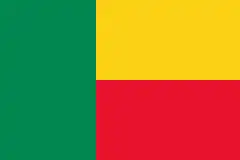 Benin
Benin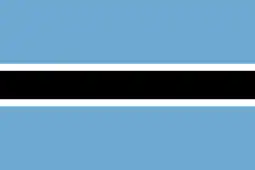 Botswana
Botswana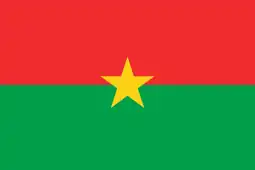 Burkina Faso
Burkina Faso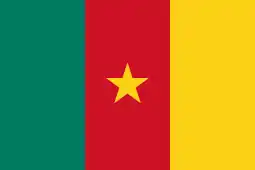 Cameroon
Cameroon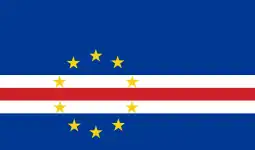 Cape Verde
Cape Verde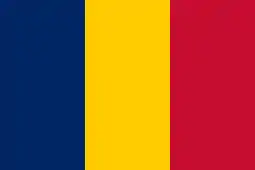 Chad
Chad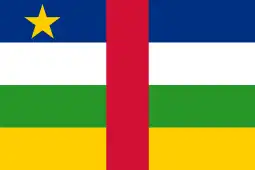 Central African Republic
Central African Republic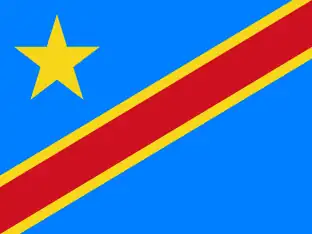 DR Congo
DR Congo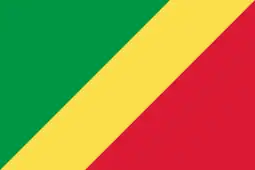 Congo
Congo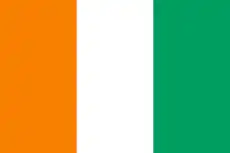 Côte d'Ivoire
Côte d'Ivoire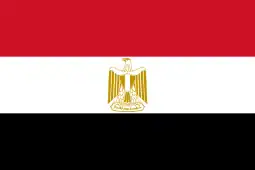 Egypt
Egypt Ethiopia
Ethiopia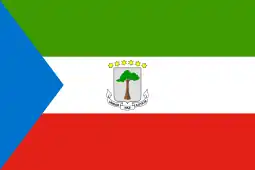 Equatorial Guinea
Equatorial Guinea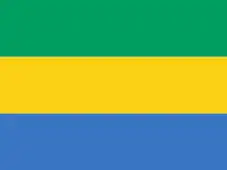 Gabon
Gabon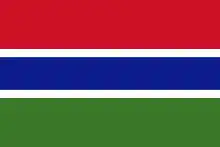 The Gambia
The Gambia Ghana
Ghana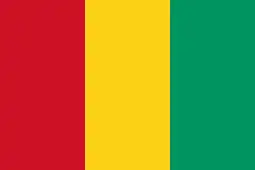 Guinea
Guinea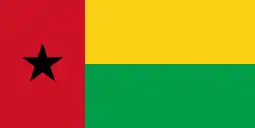 Guinea-Bissau
Guinea-Bissau Kenya
Kenya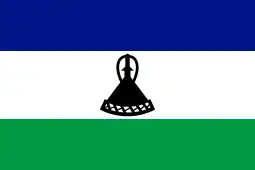 Lesotho
Lesotho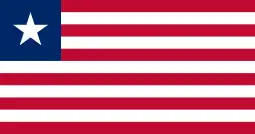 Liberia
Liberia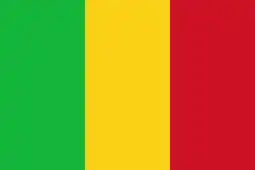 Mali
Mali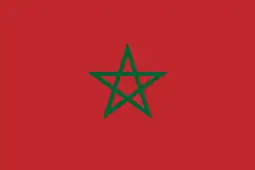 Morocco
Morocco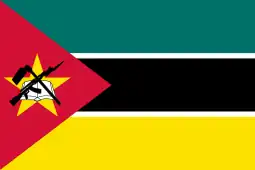 Mozambique
Mozambique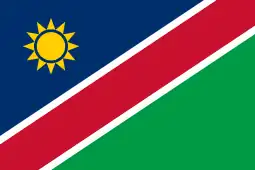 Namibia
Namibia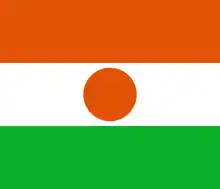 Niger
Niger Nigeria
Nigeria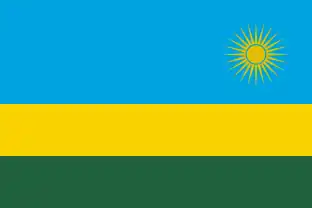 Rwanda
Rwanda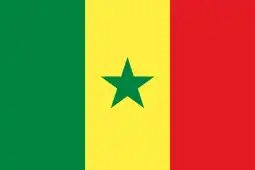 Senegal
Senegal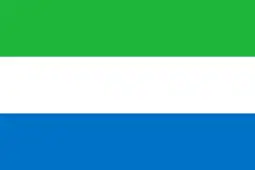 Sierra Leone
Sierra Leone South Africa
South Africa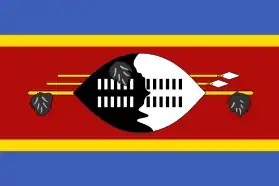 Swaziland
Swaziland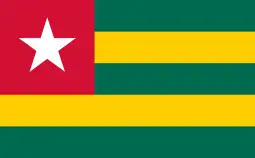 Togo
Togo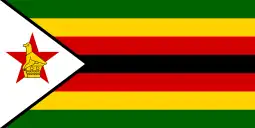 Zimbabwe
Zimbabwe
Evaluation
Some African governments and airlines have criticised the project. Especially smaller airlines, as well as the Ugandan government, allege that the agreement would lead to few big airlines dominating the market, thus stifling competition.[14]
The African Development Bank, among other analysts, predicted that the SAATM would lead to cheaper flights, greater passenger volumes and economic benefits.[3][15]
The International Air Transport Association commended the African Union for launching the single market, but warned that more work would be required to effectively implement the policy.[16]
Abdérahmane Berthé, secretary general of the African Airlines Association, said that the COVID-19 pandemic has helped the implementation of the SAATM.[17]
See also
References
- ↑ "The Single African Air Transport Market is launched". UN Economic Commission for Africa. 2 May 2018. Retrieved 6 May 2018.
- 1 2 Azinge, Craig (11 April 2018). "Liberalising aviation in Africa: overview of single air transport market". Lexology. Archived from the original on 10 April 2018.
- 1 2 3 4 Schlumberger, Charles E. (2010). Open Skies for Africa – Implementing the Yamoussoukro Decision (PDF). Washington, D.C.: The World Bank. ISBN 978-0-8213-8205-9.
- ↑ "The Single African Air Transport Market". NEPAD. January 2018. Archived from the original (PDF) on 11 February 2018. Retrieved 6 May 2018.
- ↑ "SAATM makes significant progress". ippmedia.com. 28 November 2019. Retrieved 20 March 2020.
- ↑ "Declaration of Yamoussoukro on a new African Air Transport Policy" (PDF). UN Economic Commission for Africa. October 1988. Retrieved 6 May 2018.
- ↑ Momoh, Oshokha Michael (14 February 2018). "Liberalising aviation in Africa: the Yamoussoukro Decision". International Law Office. Archived from the original on 20 February 2018.
- ↑ "Establishment of a Single African Air Transport Market: Ministerial Working Group Experts' meeting". tralac.org. 12 October 2017. Retrieved 6 May 2018.
- ↑ Giles, Chris (31 January 2018). "Sky's the limit as Africa makes major move towards aviation single market". CNN.
- ↑ Aglionby, John (28 January 2018). "Twenty-three African states launch single aviation market". Financial Times. Addis Ababa.
- ↑ "AU aims to have at least 40 member states join SAATM by end of 2019". The New Times. Xinhua News Agency. 9 February 2019. Retrieved 19 March 2020.
- ↑ Kazeem, Yomi (29 January 2018). "African countries have taken the first major step towards cheaper continental flights". Quartz Africa. Retrieved 9 April 2018.
- ↑ "IATA SAATM". Retrieved 7 July 2022.
- ↑ Bekele, Kaleyesus (30 January 2018). "Africans Still Divided on Single Air Transport Market". Aviation International News. Retrieved 6 May 2018.
- ↑ Smulian, Mark (11 April 2018). "Development bank prepares aviation plan for Africa". PublicFinance International. Archived from the original on 11 April 2018. Retrieved 6 May 2018.
{{cite news}}: CS1 maint: unfit URL (link) - ↑ "IATA Welcomes Single African Air Transport Market but Says Effective Implementation is Key" (Press release). International Air Transport Association. 28 January 2018. Retrieved 6 May 2018.
- ↑ Moores, Victoria (25 November 2020). "ANALYSIS: For Most African Carriers, Next Year Will Be Precarious". aviationweek.com. Aviation Week Network. Retrieved 10 December 2020.